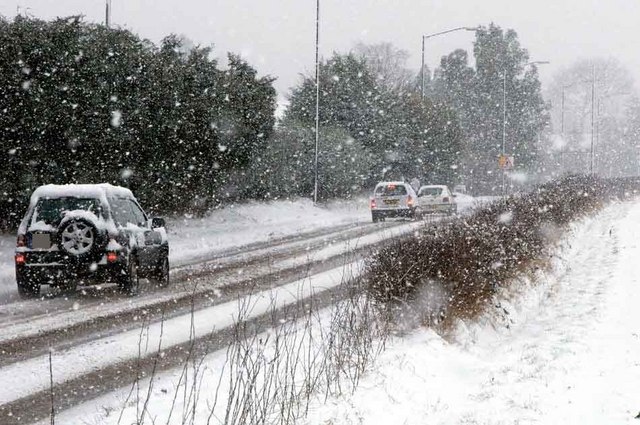Snow warnings across the UK are set to bring driving challenges, warns insurance experts at First Vehicle Leasing, especially when snow blankets the roads. While most drivers are aware of the basic dos and don’ts, our recent survey across 2000 UK drivers reveals nearly 35% of drivers are unaware of these 10 driving guidelines.
Gary Holmes from First Vehicle Leasing dives into these often-overlooked aspects, ensuring you’re well-prepared to drive the winter roads.
Use of Vehicle Lighting in Snow
Importance: Using the right lights in snow is crucial for visibility and legal compliance.
Tip: Always use dipped headlights in poor visibility and ensure all lights are free from snow and ice.
Risk: Failure to do so can result in fines due to impaired visibility for you and other road users.
Did you know that 25% of our survey do not know how to use lights in the snow.
Enhanced Tyre Tread Depth for Safe Winter Driving
Importance: The legal minimum tread depth (1.6mm) is often insufficient in snowy conditions.
Tip: Aim for a minimum of 3mm tread depth for better grip and control on snowy roads.
Risk: Driving with inadequate tread can lead to fines and increased accident risk.
Mandatory Snow-Clearing from Your Vehicle
Importance: Snow on your car can fall off and obstruct other drivers or pedestrians.
Tip: Ensure your car’s roof, windscreen, windows, and mirrors are clear of snow and ice.
Risk: Neglecting this can lead to fines for creating potential hazards.
Ensuring Number Plate Visibility at All Times
Importance: Snow-covered number plates hinder identification and are illegal.
Tip: Regularly check and clean your number plate in snowy conditions.
Risk: Fines can be imposed for obscured number plates.
Windscreen Washer Fluid: A Winter Essential
Importance: Adequate washer fluid is vital for maintaining visibility.
Tip: Use a fluid with antifreeze properties to prevent freezing.
Risk: Inadequate visibility due to lack of washer fluid can lead to fines.
The Importance of Battery Maintenance in Winter
Importance: A poorly maintained battery can lead to breakdowns and obstructions.
Tip: Regularly check your battery’s health and charge.
Risk: A vehicle breakdown due to battery issues can result in obstruction fines.
Understanding Your Insurance Coverage in Winter
Importance: Certain policies have specific clauses for winter driving.
Tip: Review your insurance policy for any winter-specific terms.
Risk: Non-compliance with these terms can lead to fines or invalidated insurance.
Proper Use of Snow Chains and Socks
Importance: These aids can provide better traction but must be used correctly.
Tip: Ensure they are fitted properly and only when necessary.
Risk: Incorrect use can damage roads and your vehicle, leading to fines or legal issues.
The Legalities of Idling in Cold Weather
Importance: Extended idling to defrost your vehicle can be environmentally harmful and is regulated in some areas.
Tip: Avoid prolonged idling; use other methods to defrost your car.
Risk: Fines can be imposed for violating anti-idling regulations.
Mindful Parking to Avoid Pavement Obstructions
Importance: Snowy conditions often lead to parking challenges, but obstructing pavements is illegal.
Tip: Park considerately, ensuring you’re not blocking pavements or access ways.
Risk: Fines can be issued for causing obstructions.
Gary Holmes, Motoring expert from First Vehicle Leasing says:
“By focusing on these ten detailed aspects of winter driving, you can not only ensure your safety but also stay compliant with the law. Remember, being prepared and informed is key to navigating the snowy roads of the UK confidently and responsibly.”
Help keep news FREE for our readers
Supporting your local community newspaper/online news outlet is crucial now more than ever. If you believe in independent journalism, then consider making a valuable contribution by making a one-time or monthly donation. We operate in rural areas where providing unbiased news can be challenging. Read More About Supporting The West Wales Chronicle


























